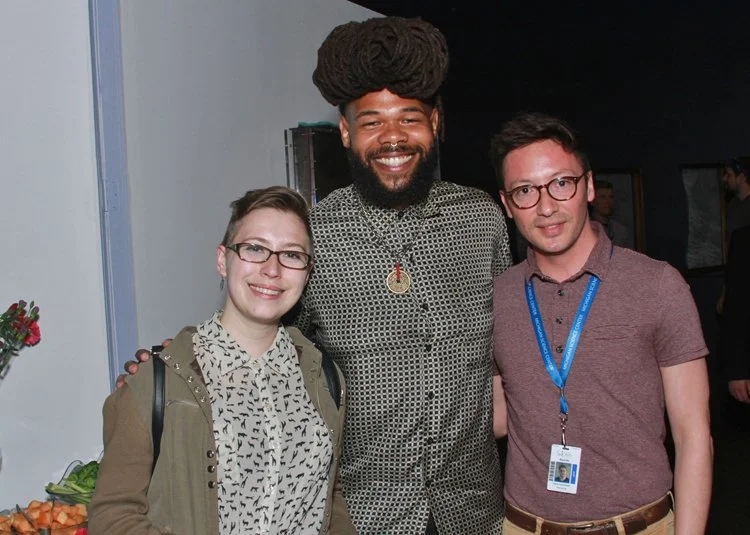Maris Polanco: mediator and contributing artist to depth
One of Science Gallery Detroit’s own Mediators, Maris Polanco, has her artwork featured in its summer exhibition DEPTH.
Maris Polanco, Eternal Jellyfish, 2019
Maris is at the heart of where science and art collide. As a biology lecturer, musician and Mediator at Science Gallery Detroit, she is exposed to both worlds daily. The influence of each can be seen in her artwork ETERNAL, a 60-foot (18.3 metre) giant jellyfish made entirely out of recycled plastic, which she created for the exhibition DEPTH.
Just after Science Gallery Detroit’s first exhibition, HUSTLE, ended, the Head of Programming at SG Detroit, Antajuan Scott, encouraged Mediators to submit ideas to the upcoming DEPTH Open Call (the platform that artists use to submit their pieces for consideration).
Antajuan was thrilled to see that Maris sent in an application, as she didn’t typically view herself as an “artist”. Maris’ ETERNAL quickly rose to the top of submitted artworks and soon went into production for DEPTH. Antajuan helped Maris scale the jellyfish to its final size. Although there were some kinks in production, Maris was “brilliant with calculations” and the piece was soon soaring over the exhibition as one of its most iconic pieces
“Having the opportunity to work with Maris as an exhibitor after being a mediator just confirmed how unique our Mediator cohorts are”
From left to righ: Maris Polanco, Antajuan Scott, Ricardo Garcia
The piece ties in perfectly with DEPTH’s themes as it raises the issue of plastics in our oceans and their harmful effect on wildlife. Due to their ethereal appearance, plastic bags frequently get mistaken as jellyfish - confusing turtles and whales who normally feed on jellyfish. After repeated incidents, the plastic bags can take up enough room inside these animals’ stomachs and cause starvation.
The piece also draws attention to the notorious longevity of plastics in our ecosystems by specifically using the jellyfish species, which also has a remarkably long life-span. ETERNAL has since gained both international and national attention, with Planet Art in Germany asking to feature Maris’ work in the following year.
In February 2020, LabX and the Cultural Programs of the National Academy of Sciences (CPNAS) in D.C. put together an event series titled “The ETERNAL Experience” using the ETERNAL exhibit as the centerpiece and presenting programming that highlighted issues related of sustainability, pollution, ocean conservation and consumer behavior.
WHAT THEY SAID?
‘I teach (among other classes) an intro biology class at Henry Ford College. In the ecology section, students learn about keystone species - Animals whose role in the ecosystem Is disproportionately large for their population size, and whose absence would cause a trophic cascade, the disruption of many layers of the food web. I mention this because whales are among the keystone species in the marine food web, and their declining population has catastrophic implications for the entire ocean ecosystem and our climate in general. Even algae, which sequester more carbon dioxide globally than all forests, rely on whale fecal plumes for precious nutrients.
Which brings us to “why make a jellyfish out of plastic?” Natural predators of jellyfish include these important whales and other beloved sea creatures like sea turtles. They often mistake floating plastic bags for jellyfish and eat them, leading to impaction and eventually starvation and death. Seeing multiple news articles about this happening last summer inspired me to make this piece.’ – Maris Polanco, Mediator
‘Having the opportunity to work with Maris as an exhibitor after being a mediator just confirmed how amazing our Mediator cohorts are. [...] I hope to see more ideas from mediators present and past in the future.’ – Anatjuan Scott, Head of Programming
WHAT WERE THE BENEFITS AND IMPACTS?
▶ Personal development
▶ Connecting people
▶ Mediator development
▶ Supporting creativity
▶ Employee engagement
Sources: Science Gallery Detroit’s Instagram, email correspondence with Antajuan Scott and Maris Polanco Compiled by: Ciara O’Flynn, Science Gallery International 2019
Activity Date: 2019


